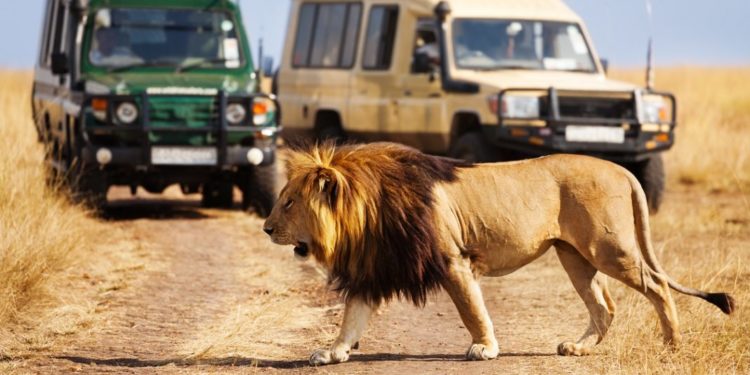In a move aimed at bolstering conservation efforts and maintaining the pristine beauty of Kenya’s national parks, the Kenya Wildlife Service (KWS) has proposed an increase in national park fees. This decision comes in response to the escalating costs of preserving these natural treasures and ensuring sustainable wildlife habitats. While the proposal has sparked debates about accessibility and its impact on tourism, it underscores the delicate balance between conservation and economic considerations.
Read more: Walter Raria Koipaton, Newly Appointed KWS Board Chair Assumes Office
KWS made the announcement on Wednesday, with the new rates taking effect for the period January 2024 to December 2025. Kenyan adults will be required to part with Kshs 2,000 to gain entry to Nairobi National Park, a significant increase from Kshs 430. On the other hand, children will be required to pay Kshs 500 from the current Kshs 215. Entry fees to premium parks such as Amboseli National Park will be charged at Kshs 1,000 during peak seasons and Kshs 800 during low seasons. Peak season in Kenya usually runs from 1st July to 31st March, while the low season runs from 1st April to 30th June.
The proposed fee hike aims to generate additional revenue that can be directly channelled into conservation efforts, anti-poaching initiatives, and infrastructure improvements within the national parks. KWS argues that the current fee structure does not adequately cover the costs of maintaining and safeguarding these areas, which are essential not only for wildlife preservation but also for attracting tourists.
Critics of the proposal are worried that an increase in fees could deter local visitors, thus limiting the reach of the parks. Advocates of accessible conservation emphasize that making these natural wonders affordable to a wide range of people is key to fostering environmental awareness and garnering public support for preservation efforts.
Read more: Rebound in the Hospitality Sector
To address concerns about accessibility, the KWS could consider implementing tiered pricing based on residency or offering special discounts to school groups and local communities. Additionally, transparent communication about how the increased fees directly contribute to conservation efforts could help garner public support.
KWS’s proposal to increase national park entrance fees is a complex issue that requires careful consideration. Striking the right balance between generating necessary funds for conservation and ensuring accessibility to a diverse range of visitors is crucial. The outcome of this debate will impact not only the financial viability of conservation efforts but also the broader goal of raising awareness about the importance of preserving Kenya’s remarkable natural heritage.
Read more: Embracing Diversity: Masai Mara’s Allure to Local and International Visitors
Email your news TIPS to editor@thesharpdaily.com












